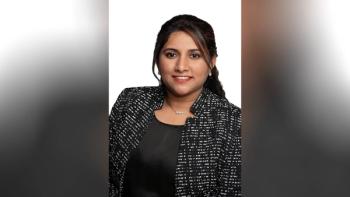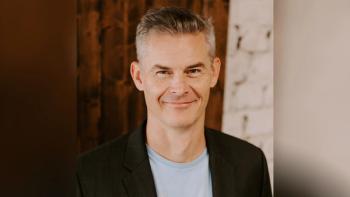
- Pharmaceutical Executive: August 2025
- Volume 45
- Issue 6
Driving Disruption in Delivery
Key Takeaways
- Surf Bio's technology allows high-dose biologics to be self-administered, reducing reliance on resource-constrained infusion centers.
- Bryan Mazlish transitioned from finance to life sciences, driven by personal experiences with type 1 diabetes in his family.
Ex-Wall Street trader is helping reshape how patients receive biologics.
As CEO of a company based in Palo Alto, CA, it’s not surprising that Bryan Mazlish describes himself as a disruptor. The co-founder and CEO of Surf Bio has personal experience on the patient side of infusions, and that very experience is what inspired him to find new ways of delivering medication to patients that doesn’t force them to jump through unnecessary hoops and allows them to continue to live their lives with as little intrusion as possible.
Surf Bio leverages technology that it licenses from Stanford University, which is the home to one of the company’s other founders.
“Our technology is based on a novel molecule that was developed in my co-founder’s lab that enables us to create ultra-high concentration formulations, primarily for biologic molecules,” says Mazlish. “In doing so, we’re able to solve critical challenges for the administration of biologics. We can deliver very high doses in standard, small, prefilled syringes. This makes it very accessible and enables patients to self-administer these drugs at home and avoid having to make a trip to an infusion center at a hospital.”
While he doesn’t know the exact number of patients relying on these infusion centers for treatment, Mazlish draws from his personal experience to know that it’s more than these centers can comfortably handle. “I can say that as an individual who has had to avail myself of infusion center resources, it’s not an easy appointment to get. That tells me that they’re fairly resource constrained,” he tells Pharm Exec. “It can take weeks to months to get an appointment at one of these infusion centers. We’re only discussing a relatively small cohort of biologics that require infusions right now. Over the next five to 10 years, however, there are going to be 10 times as many new programs developing high-dose biologics.”
According to Mazlish, the number of infusion centers, and the number of seats in those centers, is not going to be enough to support the delivery of the new, innovative medicines that he sees coming down the pike in development. For patients, this means that getting appointments will not only be more difficult, it will also force them to take appointments at inconvenient times and at centers that might not be easily accessed.
Starting in finance
While Mazlish has personal experience on the patient side, his career actually began in the finance sector. He started working in quantitative finance, where he says he spent time running trading desks on Wall Street and developing automated trading algorithms for a private fund that he ran. However, things would change.
“I made a career switch when my son was diagnosed with type 1 diabetes and went on to create the first do-it-yourself automated insulin delivery system for my wife and son, both of whom have type 1 diabetes. That’s what led me to make the pivot from finance to life sciences,” explains Mazlish. “I went on to found a med device company called Bigfoot Biomedical, which developed better solutions for patients who take insulin. That company got its first product cleared in 2021 and was acquired by Abbott in 2023. It was toward the end of my time there that I partnered up with my co-founder from Stanford and a third co-founder to found Surf Bio. That was a little over four years ago, and we’ve been working on the ultra-high concentration formulations ever since.”
Finding better solutions
“I’m driven to build something new, but not just for the sake of newness,” says Mazlish when asked about working with startups. “It always comes with a purpose. For better or for worse, I’ve been put in the place where I have a real understanding of the problem that we’re trying to solve at Surf Bio. I think that’s a critical aspect, especially for a startup. It’s really hard to do a startup—not only having the understanding of what problem you’re trying to solve, but also the motivation to solve it is critical to making it a success. That’s true for the founders and for those who join you in your mission to solve these problems.”
Mazlish is skilled at identifying problems and then finding solutions to those problems. One of his “superpowers,” he says, is his ability to combine technology and business to find the intersections where novel technologies can solve patient-centered problems.
“It doesn’t sound like there are a lot of commonalities between stock trading and automated insulin delivery,” he says. “At the time my company was developing automated trading algorithms; however, we looked at stock data, did some calculations, and then executed trades based on that analysis. It’s actually quite similar to what you need to do when creating an automated insulin delivery system: you take glucose data from a continuous glucose monitor, do some calculations, and then execute changes to the insulin delivery via an insulin pump.”
Articles in this issue
6 months ago
The CAR-T Climb6 months ago
2025 Emerging Pharma Leaders6 months ago
An RNA-Guided Path6 months ago
Acceleration and Ambition6 months ago
Building Promise from Precision6 months ago
Determined Problem-Solver6 months ago
How to Get Product Iteration Right in HealthcareNewsletter
Lead with insight with the Pharmaceutical Executive newsletter, featuring strategic analysis, leadership trends, and market intelligence for biopharma decision-makers.




